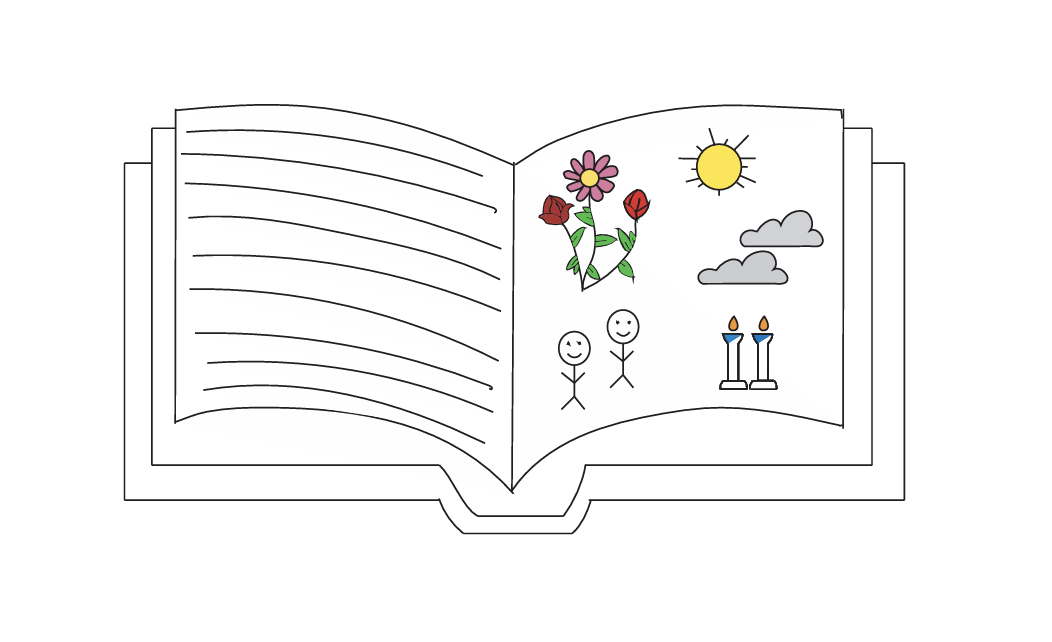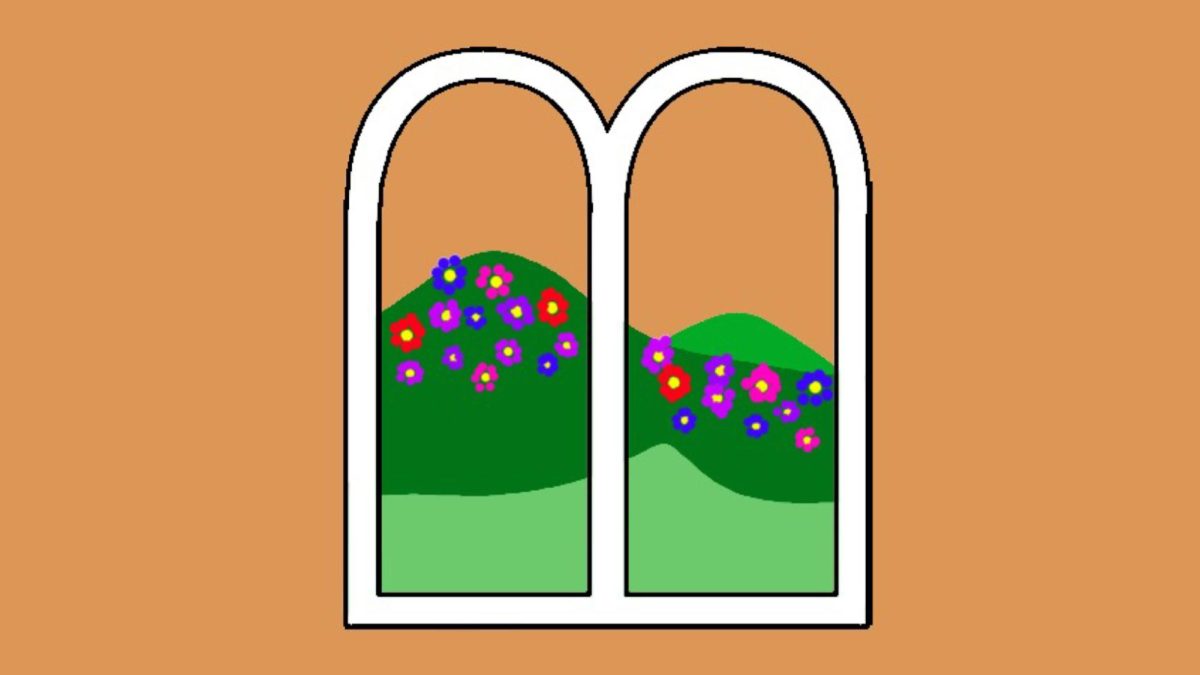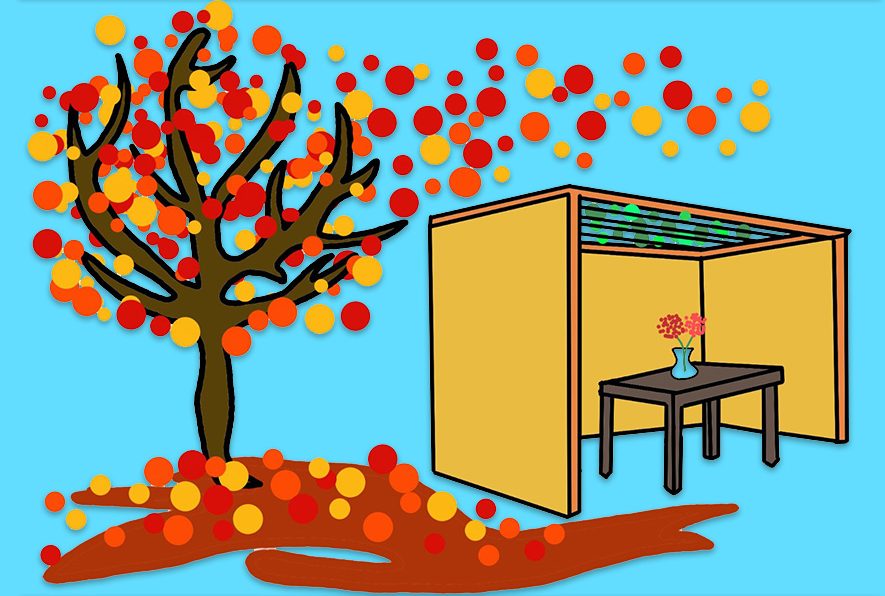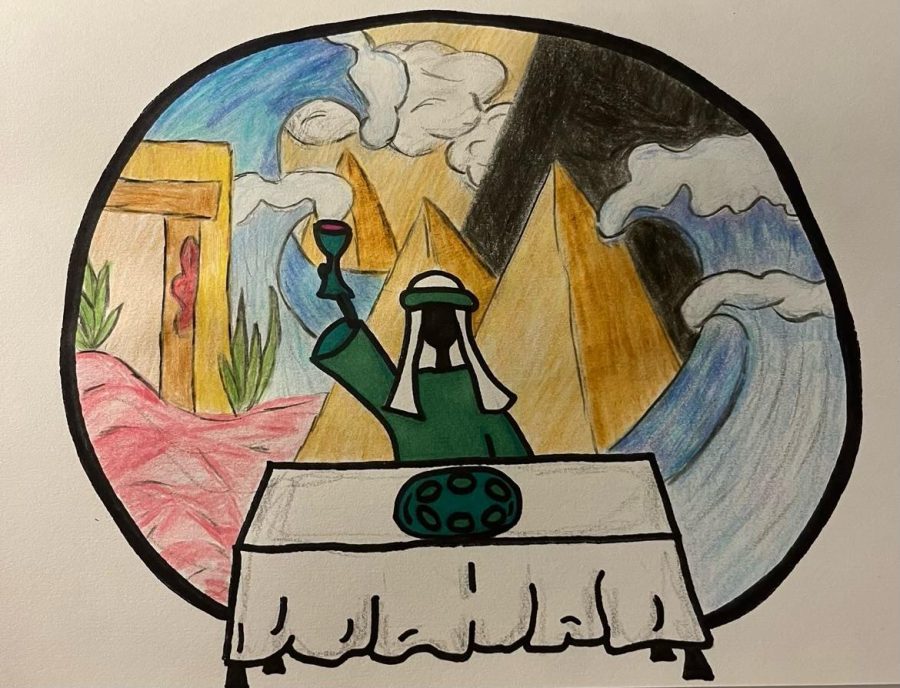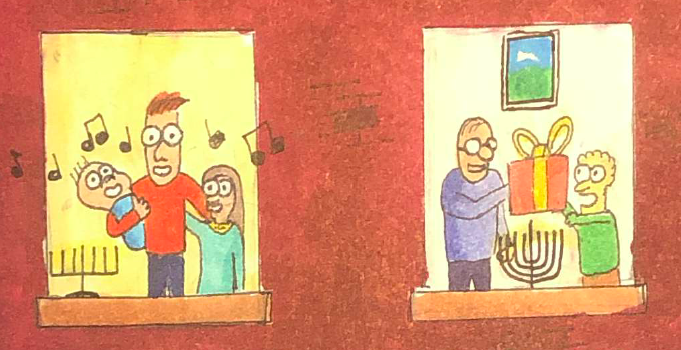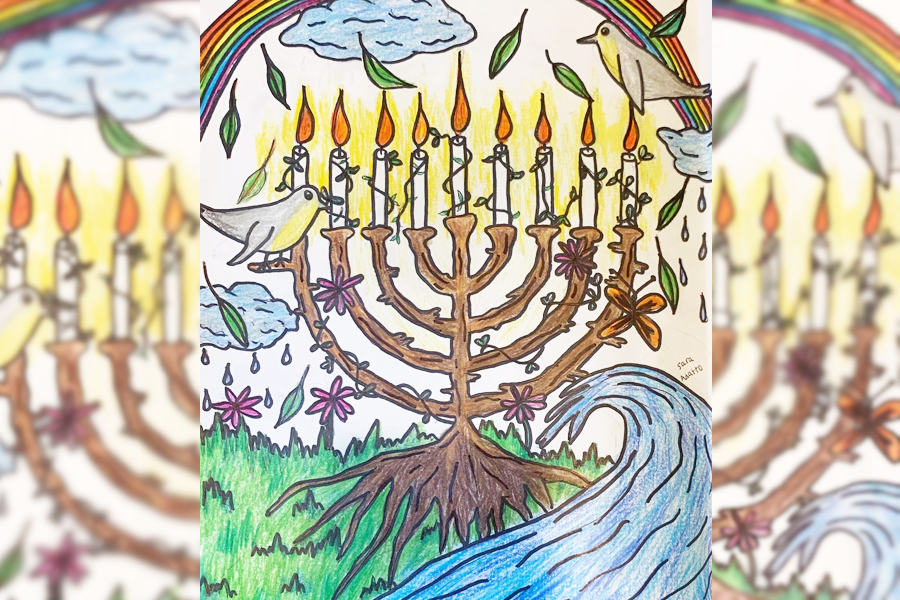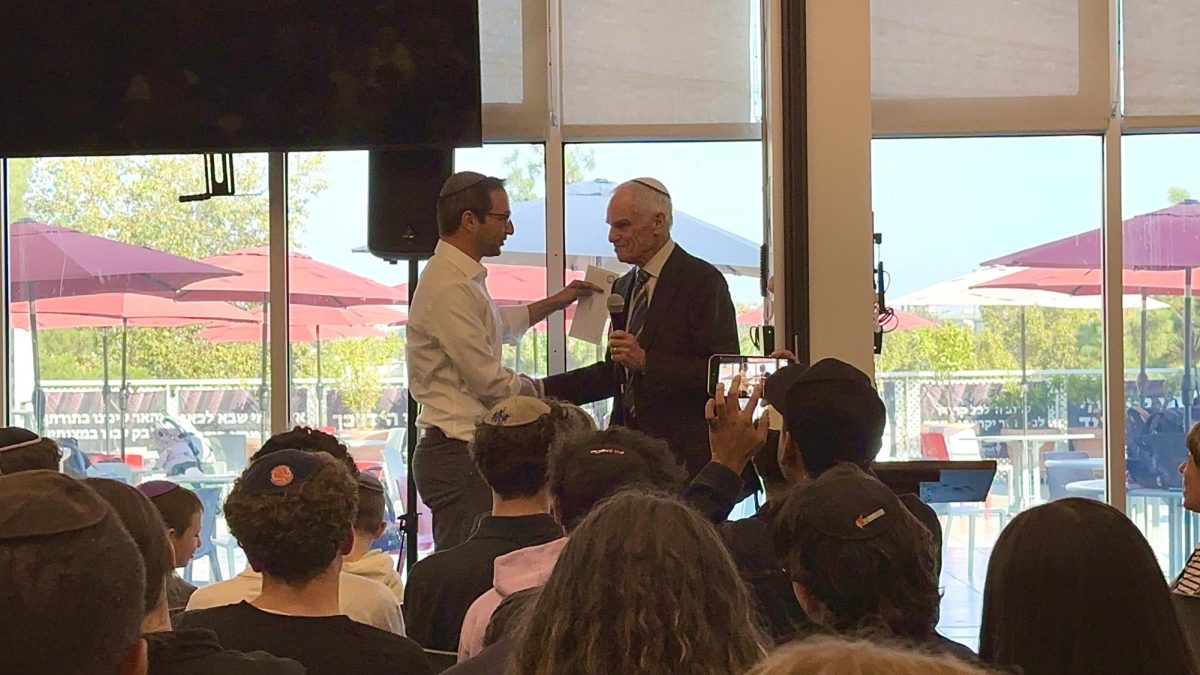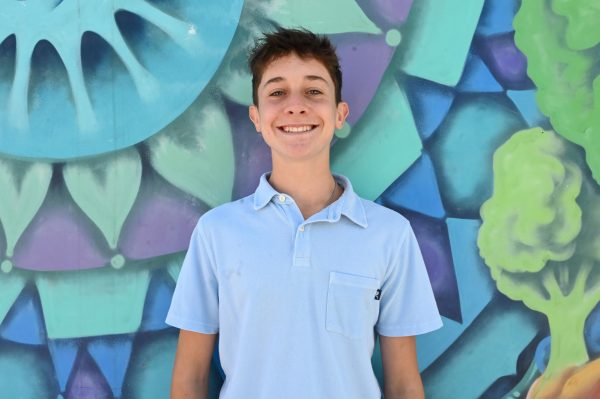We are cleansed of our sins on Yom Kippur when we confess, when we apologize, and when we forgive ourselves. The process of teshuva – repentance – is when we repair our wrongdoings and ultimately return to the goodness we all possess.
How do we come to understand teshuva through the story of Yonah?
In the past, the idea of teshuva always seemed a bit abstract to me with its many dimensions. This year in my Tanakh class led by Rabbi Ari Schwarzberg, we were able to shed some light on this by taking a deeper look at the book of Yonah, which is read during Mincha on Yom Kippur.
In the story, Hashem instructs Yonah to travel to the city of Nineveh to warn them to mend their wicked ways or their city would be destroyed. Instead of following that instruction, Yonah flees from Hashem’s calling and jumps onto a boat to Tarshish, a land of luxury and pleasure.
Hashem is angry. A raging storm tosses Yonah overboard into the belly of a big fish. The cause of this violent storm is Yonah’s defiance. Only after crying for three days and admitting that he should have listened to Hashem is he expelled from the fish and set free onto land.
Hashem comes to Yonah a second time and asks him again to warn the sinful people of Nineveh. Though reluctant, he finally understands the importance of fulfilling Hashem’s mission. As a result, Yonah is very effective: the people and all the animals of Nineveh immediately repent and fast. Remarkably, Hashem forgives them.
What’s interesting about this is not only that a city filled with wickedness is forgiven – an important message for Yom Kippur on its own – but also that this forgiveness actually angers Yonah.
It angers him? Why? And why did Yonah run away from Hashem’s service to begin with?
As we learned in Rabbi Schwarzberg’s class, answers can be found by comparing two very well-known pesukim, verses, that are associated with Yom Kippur.
The first is from Shemot 34:6 that is recited during the prayer service of Selichot, which is said from the Saturday evening before Rosh Hashanah to Yom Kippur and then again and again on Yom Kippur itself:
Hashem, Hashem, El rachum v’chanun, erech apayim, v’rav chesed v’emet. – “Adonai, Adonai, our God is merciful and gracious, endlessly patient, loving, and true.”
The second is in Yonah, towards the end of the story. The first pasuk of the fourth chapter, right after Hashem decides to show mercy to Nineveh, states, “This displeased Jonah greatly, and he was grieved.״
Then, the second verse states: “For I know that You are a compassionate and gracious God, slow to anger, abounding in kindness, renouncing punishment.”
Notice that missing here from that famous phrase in Shemot is one word: emet – truth. Yonah leaves out the word when describing Hashem, stating that Hashem is merciful and kind and leaving out that Hashem is also about the truth.
Yonah was angry at Hashem for not punishing Nineveh for the people’s wickedness. Yonah himself believed truth to be greater than mercy and knew Hashem was too merciful to punish Nineveh; this is what caused him to flee.
So in reality, it was Yonah who was stuck on truth over mercy, and that is why he failed to honor Hashem’s decision to set Nineveh free.
Eventually Hashem is able to bring Yonah to repentance. The story connects to Yom Kippur because it teaches that Hashem prefers repentance and forgiveness over punishment and revenge.
As high school students we are often faced with challenges, whether they be in our school work, socially, or making the right decisions. It is important that as students, we pause to recognize the teachings and guidance from our teachers and administrators. The answers are usually right in front of us but we have to be open to seeing them.
For example, when a teacher gives an assignment we don’t like, we’re a little bit Yonah. When we work hard on something and it doesn’t turn out how we hoped, we’re a little bit Yonah. When we won’t look past a decision someone makes, we’re a little bit Yonah.
On Yom Kippur I am going to practice what I learned about Sefer Yonah but will also remember that sometimes we are all a little bit Yonah.


